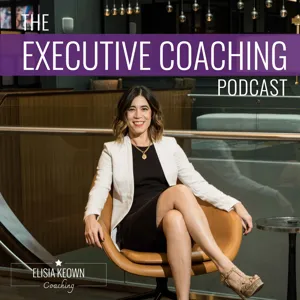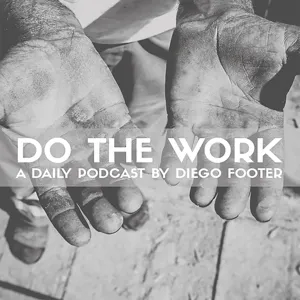Podcast Summary
Managing Multiple Projects: Prioritize Based on Restriction: Effectively manage time and energy by prioritizing projects based on their level of restriction, investing more time and effort into those that meet the highest standards.
Productivity and focus are crucial for managing multiple interests and projects, especially in a disrupted professional environment. Cal Newport, a software business owner and writer, shares his approach to deciding what to write and where, based on a listener's question. He emphasizes the importance of having increasingly strict gating criteria as one moves from less restrictive to more restrictive projects. For instance, his blog is where he experiments and receives immediate feedback, while national publications require higher quality, original, timely, and well-researched ideas. By applying these criteria, one can effectively manage their time and energy to excel in various areas. So, prioritize your projects based on their level of restriction and invest more time and effort into those that meet the highest standards.
Balancing Multiple Creative Outlets: Setting clear priorities, managing expectations, and maintaining focus can help ensure success in multiple creative outlets, but it's important to understand the unique demands and rewards of each endeavor and allocate resources accordingly.
Having multiple creative outlets can be beneficial, but it's important to set appropriate levels of restriction and focus for each one. For instance, having a consistent blog can provide frequent feedback and practice, while publications and books require more rigorous standards and dedication. Additionally, it's crucial to maintain a narrow focus and prioritize the most impactful platforms to avoid diluting energy and value. Regarding the question from Rishi, it's possible to pursue multiple careers, such as a computer scientist and an author, but it may require careful planning and time management. Setting clear priorities, managing expectations, and maintaining focus on each career can help ensure success in both areas. Ultimately, it's essential to understand the unique demands and rewards of each endeavor and allocate resources accordingly.
Balancing Multiple Careers: Being organized, hardworking, and dedicated can help in balancing multiple careers. Some careers may not require significant effort until success is achieved.
Having multiple careers or pursuing creative passions alongside a primary job can be challenging, but it's not impossible. The speaker, who is a professor and a writer, emphasizes the importance of being organized, hardworking, and dedicated to making it work. However, she also notes that some careers, like writing, may not require significant effort until one achieves success. Ultimately, it's essential to recognize the challenges and commit to prioritizing time and energy towards both careers. As the speaker puts it, "It's not something that I'm going to tell you is not going to be a problem. Go for it."
Writing requires dedication and discipline, even with multiple responsibilities: Successful authors wrote while juggling jobs, make time consistently, sequence tasks, and sacrifice time for passion or career fulfillment.
Writing, like any other passion or profession, requires dedication and discipline, even when juggling multiple responsibilities. Many successful authors have written while holding down other jobs, using every spare moment they could find. Jean Grisham wrote in the early hours before his law practice and legislative duties, Clive Cussler wrote late at night when his kids were asleep, and Michael Crichton wrote wherever he could during his medical residency. However, once an author finds success, the demands on their time increase, making it more challenging to balance both careers. For those looking to write while working as a software developer or a personal assistant, the first step is to make time for writing consistently, even if it's just a few hours a day. Sequential work, focusing on one task at a time, can help increase productivity and reduce burnout. As a personal assistant, managing tasks sequentially can help minimize distractions and maximize productivity. Ultimately, the sacrifice of time and energy is worth it when pursuing a passion or career that brings fulfillment.
Stay focused on one task at a time in support roles: Effectively manage distractions, use an organized system for managing tasks, and stay focused on one task at a time to increase productivity, reduce stress, and provide better service in support roles
To be effective in support roles, it's crucial to focus on one task at a time without letting distractions disrupt your workflow. This includes avoiding email and Slack while working on a task until it's completed or until a natural breaking point is reached. Additionally, it's essential to have an organized system for managing requests and tasks outside of generic communication channels like email and Slack. Ticketing systems, used effectively in IT support, can help streamline this process by categorizing, tracking status, and allowing clear communication between team members. By minimizing cognitive overhead and staying focused on one task at a time, support professionals can increase productivity, reduce stress, and ultimately provide better service to their clients.
Managing tasks and communications with systems and workflows: Implementing ticketing systems and tools like Trello can help organize tasks and information, reducing cognitive overhead. Structured workflows for regularly occurring tasks simplify processes and reduce emails.
Implementing systems and workflows to manage tasks and communications can significantly improve productivity and reduce cognitive overhead for IT support professionals. Ticketing systems and tools like Trello are examples of how tasks and information can be organized and tracked in a more efficient way, allowing for better coordination and less reliance on email communication. Additionally, introducing structured workflows for regularly occurring tasks can help simplify processes and reduce the number of messages required to complete them. For instance, using scheduling tools to manage meetings can eliminate the need for multiple back-and-forth emails. Overall, getting tasks out of your inbox and into a more structured system can lead to increased effectiveness and a more sequential approach to work.
Effectively managing tasks and responsibilities: Implement processes to cater to the human brain, prioritize tasks, and establish a systematic approach to balance work, family, faith, finances, and health.
To effectively manage tasks and responsibilities in different roles, especially in support roles, it's essential to implement processes that cater to the reality of the human brain. These processes can be internal or collaborative with those you support, presented as time-saving solutions rather than complications. Furthermore, for individuals aiming to balance various aspects of life, such as work, family, faith, finances, and health, establishing a systematic approach is crucial. This could involve setting aside dedicated time for each area or prioritizing tasks based on importance. By acknowledging the interconnectedness of these areas and implementing effective strategies, individuals can ensure that all aspects of their life are well taken care of.
Balancing commitments in various areas of life: Recognize seasons in life and adjust priorities accordingly to maintain focus on career and other important aspects
Maintaining a balance between different areas of life is crucial for focusing on your career. If you neglect other important aspects, such as family or health, it can hinder your ability to sustain focus and care for your career. It's essential to identify the significant commitments in each area and be cautious of distractions. We all go through different seasons in life, and the focus on various areas may shift accordingly. During uncertain times, for instance, you might prioritize diversifying income sources, while during others, family might require more attention. The key is to recognize these seasons and adjust your priorities accordingly.
Identify and track keystone activities for balance: To maintain a balance between different areas of life, identify daily or weekly activities that signal commitment and track them consistently.
Maintaining a balance between different areas of your life requires consistency and intentionality. To achieve this, identify keystone activities in each area that you do daily or weekly and track them. These activities serve as a steady baseline that allows you to focus more intently on specific areas during different seasons of your life. They don't have to be time-consuming but should signal your commitment to each aspect of your life. By maintaining a consistent baseline, you can ensure that none of these areas diminish and remain a source of resilience and comfort during challenging times. Examples of keystone activities include daily exercise for health, deep work for career, and daily reading for personal growth. These activities provide a foundation for your overall well-being and allow you to allocate additional attention and resources to specific areas as needed.
Identifying and prioritizing daily Keystone activities: Effective, meaningful, and tractable daily activities can provide a sense of resilience and help maintain a balanced and productive life. Write them down and track progress to live a deeper and more intentional life.
Identifying and prioritizing daily Keystone activities is crucial for maintaining a balanced and productive life. These activities should be effective, meaningful, and tractable. It may take some experimentation to find the right activities for each area of your life, but once identified, they can provide a sense of resilience and help you stay focused on what's important. It's essential to write down these activities daily and track your progress to see the record in black and white. A planner with a dedicated space for tracking daily metrics can make this process easier. By consistently practicing this habit, you'll be able to live a deeper and more intentional life.
8 words: Refocus on foundational baseline: Maintaining a foundational baseline of intentional activities ensures a deep and meaningful life during inconsistently difficult times. Prioritize and focus on what truly matters to avoid a domino effect of neglected areas.
Maintaining a foundational baseline of intentional activities is crucial for keeping life consistently deep during inconsistently difficult times. It's easy to get distracted and divided when faced with multiple demands, but neglecting one area of life can lead to a domino effect of neglected areas. Therefore, it's essential to prioritize and focus on what truly matters, even when times are tough. By establishing a baseline of intentional activities, we can ensure that we are living a deep and meaningful life, even when faced with distractions or challenges. So, next time you feel overwhelmed or pulled in different directions, remember to refocus on your foundational baseline and stay deep.





